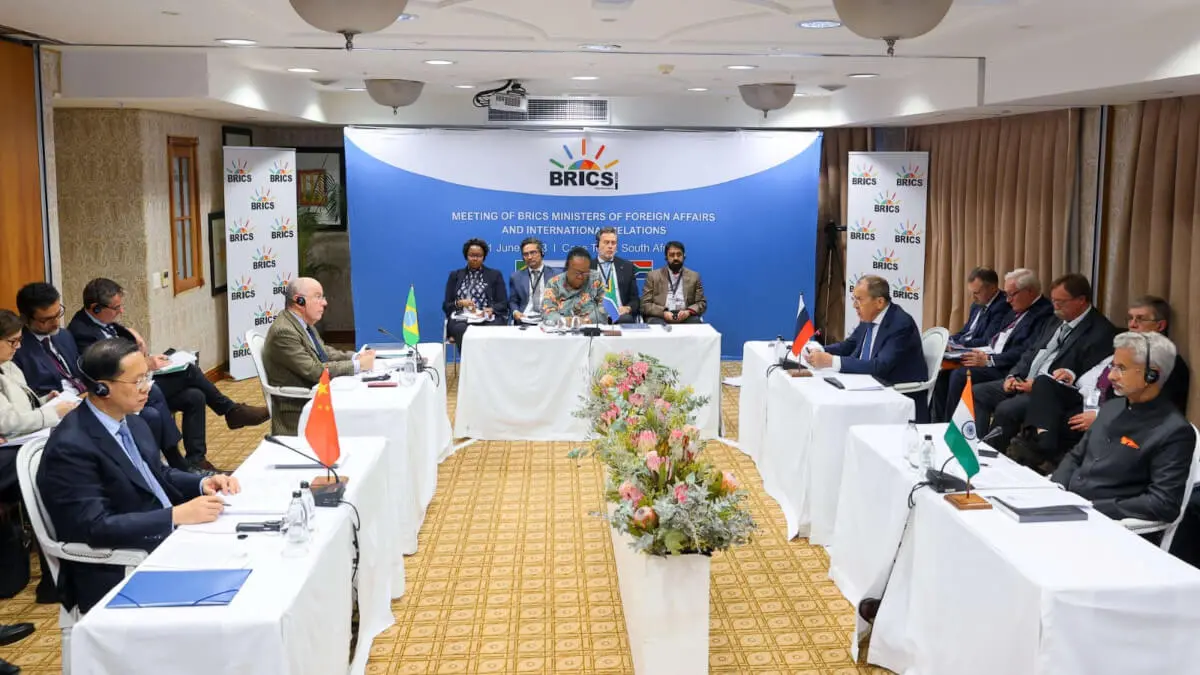The BRICS challenge

Brazil, Russia, India, China and South Africa make up the alliance that was born with the 21st century, baptised with the acronym BRICS by a Goldman Sachs economist, as an exclusively economic bloc. More than two decades later, it has also become a political alliance, with diverse regimes but with a common denominator: "counteracting Western arrogance and the hegemony of the dollar", according to the expression coined by Hong Kong analyst Alex Lo, following the conference that brought together the foreign ministers of these countries, as well as a good number of observer countries, in Cape Town. The bloc has been open to expansion and the first country to present its candidacy to join is a regional power of the formidable weight of Saudi Arabia, while eighteen others have expressed their interest in studying the pros and cons of their hypothetical membership.
From the talks in the beautiful South African city, there is an accentuation of anti-Westernism. Old grievances from the colonial era resurface, while old Europe is accused of thinking it is still the axis of the world when it has long since shifted to the Indo-Pacific. India's chief diplomat Subrahmanyam Jaishankar's statement that "Europe's problems are the world's problems, but the world's problems are not Europe's problems" is both harsh and eloquent. He was referring to the war in Ukraine as the event that overshadows the many other conflicts that are shaking the world, and which do not enjoy the same media spotlight.
But once again, the most important point discussed at the meeting was the adoption "as soon as possible" of a currency to replace the dollar in trade transactions. China already has the digital yuan in place and Brazilian President Lula da Silva has already proposed a common currency for Mercosur, the alliance that also includes Argentina, Paraguay and Uruguay. Some contracts between countries in these blocs have already begun to be executed without the US currency, and at least in public they have declared their intention to accelerate this change. In addition, they have created a common fund with the equivalent of $100 billion for emergencies and an infrastructure bank that can grant loans of up to the equivalent of $30 billion for water supply, canalisation and sanitation, transport, energy production and communication facilities.
This is in response to tough Western sanctions imposed on Russia in retribution for its invasion of Ukraine. The Russians and Chinese have been keen to stress that "the chip war, which restricts China's access to semiconductors, has been particularly damaging to international trade and the high-tech sector". It is thus underlined that the BRICS bloc, despite its political diversity, has strengthened its unity precisely because of this war. Firstly, because the sanctions against Moscow have frightened the other members of the bloc, or at least made them rather uneasy. And then because the conflict, which has undoubtedly impoverished the countries of the European Union, has nevertheless benefited them. They have obtained their oil and gas from Russia at heavily discounted prices, and even India has channelled a large part of its surplus to Europe itself, with New Delhi reaping substantial additional benefits.
In return, Russia has obtained from its colleagues, if not unwavering adherence, then active neutrality, including joint military exercises with Putin's troops from China, South Africa and India, the latter also a member of QUAD, the Quadrilateral Security Dialogue, along with Australia, Japan and the United States.
If we add to all this the recent summit organised by Lula da Silva in Brasilia with eleven other Latin American leaders, we are witnessing the emergence of a Global South, whose most obvious bonding agent is resentment towards the West, which they accuse of arrogance. The BRICS do not deny that they will fight to make their own bloc more solid and become the vanguard of this Global South.
The contours of the new global bipolarity, perhaps multipolarity if the EU succeeds in fulfilling its long-held ambition to be a powerful third way, are becoming clearer. To do so, it would need to accelerate a solid common foreign policy that would be attractive to Latin Americans, Africans and Asians, and would need to be embraced by the EU-27. Unfortunately, this is still a long way off.

